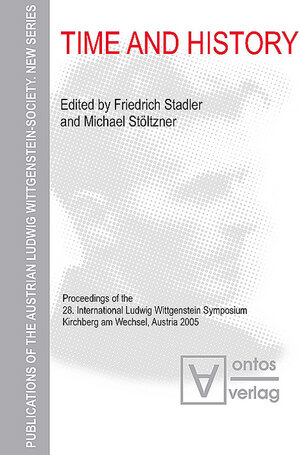
×
![Buchcover ISBN 9783938793176]()
Time and History
Proceedings of the 28. International Ludwig Wittgenstein Symposium, Kirchberg am Wechsel, Austria 2005
herausgegeben von Friedrich Stadler und Michael StöltznerTime and History presents the invited papers of the 28th International Wittgenstein Symposium 2005 in Kirchberg/W. (Austria). Renowned scientists and scholars address the issue of time from a variety of disciplinary and cross-disciplinary perspectives in four sections: philosophy of time, time in the physical sciences, time in the social and cultural sciences, temporal logic, time in history/history of time, and Wittgenstein on time. Questions discussed include general relativity and cosmology, the physical basis of the arrow of time, the linguistics of temporal expressions, temporal logic, time in the social sciences, time in culture and the arts. Outside the natural sciences, time typically appears as history and in historiography in different forms, like a history of our conceptions of time. The first chapter of the book is dedicated to the major positions in contemporary philosophy of time. Is there a real sense of past, present, and future, or is time just a special coordinate among others? What does it mean that identity persists over time? The importance of Wittgenstein for present-day philosophy notwithstanding, his ideas about time have hitherto received only little attention. The final chapter, for the first time, provides an extensive discussion of his respective views.


